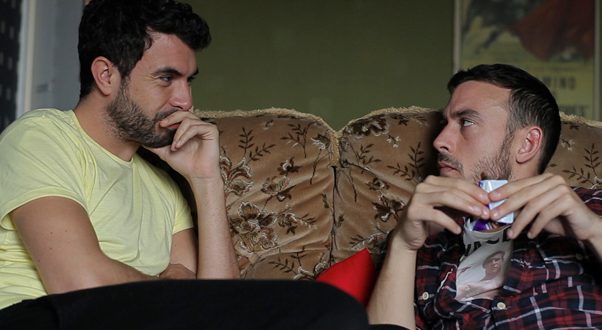
The Occupy Wall Street Protestors should watch “Margin Call.”
In fact, let the whole 99 percent watch it, as this intricate and cerebral character drama is not only an engaging dramatization of the start of the 2008 credit crisis but is also the finest 21st Century movie of the year.
It is possibly the finest fictional film yet made about the current financial crisis, and it is so because “Margin Call” makes out to humanize the 1 percenters that got us into this mess. It does not view these people as evil nor as idiotic, but as flawed, misguided and ultimately trapped people struggling like the rest of us.
As we attain pity for their sins, it has the power to educate us and immerse us in a realistic re-imagining of how this mess started.
The film focuses on a fictional investment-banking firm in a 24-hour period just as the markets began to collapse. Not afraid to spew jargon, “Margin Call” explains how the volatile derivative formulas that virtually no one in the firm can actually understand and yet governed the whole market ideology, proved to be completely wrong. It left the banks with bad mortgages and investments that had been bundled together and bought and sold globally to create a big housing and market bubble. Rather than simply tank and instantly bankrupt the entire company to ensue mass havoc, the banks disposed of all their bad investments in a fire sale, ruining everyone else in the process. Sorry to spoil that ending.
“Margin Call” views this action as a last ditch effort of these powerful people who now realize they have made a fatal mistake just to stay alive, even if it means compromising moral integrity and rational future business plans. And the film’s moral ambiguity coupled with its awareness of the inevitable fate in the future makes the film wonderfully compelling and poignant.
This is a strict dramatization, but one would like to think these ideas actually bounced around boardrooms. There are sinister ideas, but also feelings of remorse, panic and concern that make this screenplay by first time director and writer J.C. Chandor convincingly multi-dimensional.
What’s fascinating about “Margin Call” is how theatrical it is. You will not see graphs or numbers of any kind watching this film. At times the execs seem to understand as little as you do about the financial mumbo jumbo.
And everything about the film is calmly and carefully constructed drama befitting a play. Millions are being lost in seconds, and the movie does not devolve into mass panic and melodrama of bulls, bears, bells and whistles.
“Margin Call’s” star and producer Zachary Quinto is far from the young, hyper business student stock broker rattling off words at a mile a minute. He’s a cool and collected key in a marvelous, weakness free cast.
Jeremy Irons as the firm’s CEO is as commanding as he’s been on screen in years. Kevin Spacey is in full “Glengarry Glen Ross” mode. Simon Baker is a riveting Wall Street mogul that would give Gordon Gekko a run for his money and yet never feels too similar to that now cliché stereotype. Paul Bettany has two of the most memorable and poignant monologues together in one film this year. And Stanley Tucci is the most relatable of all as a manager who has just been laid off in a scene reminiscent of “Up in the Air.”
“Margin Call” is well aware of the now bleak economic future we live in, but in that way it is more relevant than ever. It provides the rationality that we have always and will always prosper and ruin ourselves in an endless cycle of capitalism.
As Kevin Spacey’s character does as the movie closes, the only thing left for us to do when it comes to expecting change in the market is to start digging our own graves.
4 stars






